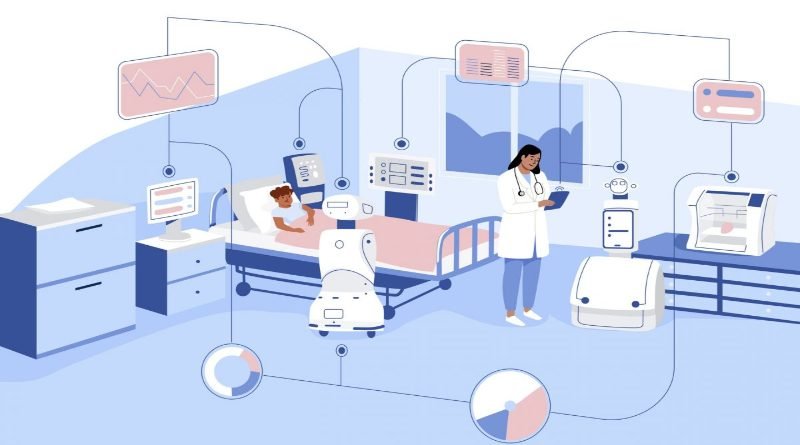Strayed from the path: the EU needs to recalibrate its public health policy
On April 7th, the World Health Organization’s European branch observed World Health Day 2024 with a resonant theme: “my health, my right.” This designation is timely and imperative, given the rising non-communicable diseases (NCDs) that plague the continent and the mounting barriers to healthcare access faced by its citizens.
Aligning with this observance, the European Commission has endeavored to link this significant day to its broader ambition for a European Health Union, spotlighting initiatives such as Europe’s Beating Cancer Plan. At the heart of these efforts lies a profound commitment to combat the leading drivers of NCDs, including tobacco use and unhealthy diets. However, despite the noble intentions and substantial investments, there’s growing concern that the EU’s strategy might not be hitting the target in its fight against public health challenges.
Missing the point on nutrition
The Commission’s approach, while ambitious, appears to miss critical opportunities to promote evidence-based policies that address the root causes of health issues in Europe. This oversight is particularly glaring in the realm of tobacco control. Despite tobacco use being a leading cause of premature death within the bloc, Brussels’ policies in this area seem to falter, primarily due to the pernicious influence of Big Tobacco. The interference from tobacco lobbyists has led to noticeable delays in the updates to the Tobacco Products Directive and the Tobacco Taxation Directive, hindering progress in a crucial battle for public health.
Another major issue is Europe’s obesity crisis, which adds another layer of complexity to the public health landscape. The European Commission has rightly identified nutritional health as a crucial element of its ‘Farm to Fork’ strategy, which is part of the European Green Deal. However, the strategy’s primary policy proposal to incentivise Europeans to eat more healthily relies on front of package (FOP) labels intended to help consumers make better choices when grocery shopping.
Several labels have been proposed, among them Nutri-Score, which stands out for the intense criticism it has received from the scientific community virtually since day one. Subject of intense debate, the French-proposed Nutri-Score has been criticised as overly simplistic and misleading because of its tendency to favour processed foods. Arguably most scathing from a scientific point of view is the fact that Nutri-Score has not been developed in line with the scientific method. For example, a recent Dutch study indicates that the developers of Nutri-Score were involved in most of the research that viewed the system favorably. This contrasts sharply with independent studies, over 60% of which have critiqued the system negatively.
Although the debate on implementing the system lay dormant for months, partially because the system’s flaws were not convincingly resolved, the Belgian Council Presidency’s attempt to revive the discussion now threatens to inject a further element of confusion into the policy-finding process.
The way back to reasonable policy
This policy standoff reflects a broader issue within the EU’s health strategy: a failure to adopt a holistic, systemic approach. While the European Health Union and its associated investment programmes signify a bold step towards a healthier continent, their potential remains underutilized due to a narrow focus on specific health threats and piecemeal solutions. For instance, tackling the obesity epidemic requires more than just labeling strategies. Instead, what it really needs are comprehensive interventions that address socioeconomic disparities, urban planning deficiencies, and education gaps that contribute to unhealthy lifestyles. This also highlights the complexity and multifaceted nature of public health, where a cross-sectoral approach is crucial for achieving the required results.
In all fairness, European policy-makers have already understood that fact. This is reflected in the European Environment Agency’s emphasis on greening urban spaces, since green and blue (river banks and coasts) spaces are recognized to boost health and well-being, leading to “reduced risks of obesity in children, to better cardiovascular health and lower rates of depression in adults”. They also improve “air quality, reduce noise, moderate temperatures during hot periods, and boost biodiversity in city landscapes.”
While better education on food and nutrition is key, particularly among children and young parents, the EU could also be more ambitious in ensuring that more healthy options are simply available. A 2020 study on the implementation of the WHO European Food and Nutrition Action Plan 2015–2020 among Member States in the WHO European Region shows that “foods and beverages high in fats, trans fatty acids, sugars and salt (HFSS products) have become more widely available, cheaper and are heavily promoted, particularly to children”. The implication here is that the EU could leverage marketing rules and sales restrictions to avoid excessive consumption of these foods.
What this shows is that as Europe confronts the escalating challenge of NCDs and obesity, the time is ripe for a reevaluation of its public health strategies. The European Commission’s current efforts, while commendable for their scope and ambition, must evolve to more effectively address the complex interplay of factors that influence health outcomes. By embracing a holistic approach Brussels could not only combat NCDs more effectively but also pave the way for a healthier, more resilient Europe.

